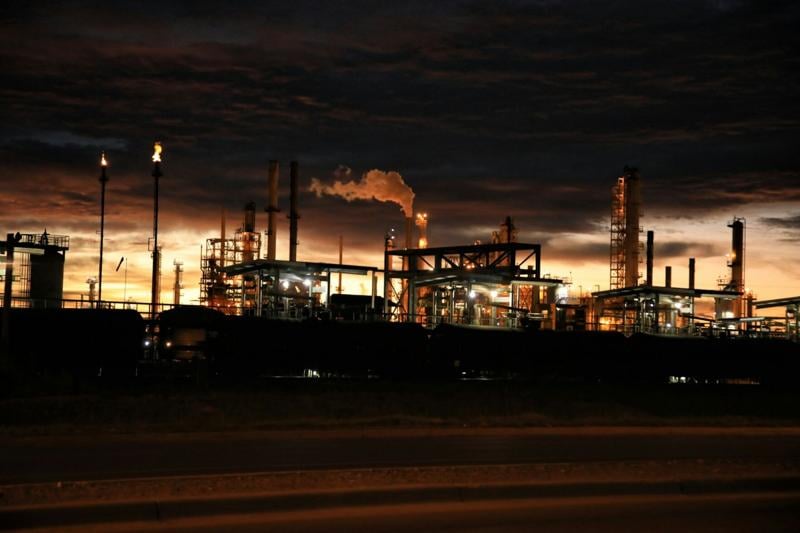(The Center Square) – California lawmakers are demanding a cost analysis and vote delay by an appointed state commission on carbon credit changes that could significantly increase the costs of goods for all Americans. According to California Air Resources Board’s estimates, the new standards would increase the cost of fuel by $152 billion through 2046, much, if not all, of which will be paid by consumers.
CARB also estimates that refineries would pay over $1 billion per year in additional LCFS costs under the new proposal, which could force the state’s remaining facilities to shut down, a threat the fuel supplies of Arizona and Nevada, which rely on California for energy.
The California Air Resources Board — all but two of whose members are appointed by the governor — is voting on November 8 on whether or not to adopt more stringent requirements for its Low Carbon Fuel Standard program, by which the state uses a system of credits and deficits to reward or punish producers that make fuel better or worse than the rising “clean” standard.” While the current LCFS guidelines aim for a 20% reduction in carbon intensity by 2030 compared to 2010, the proposed amendments would aim for a 90% reduction by 2045, requiring much steeper cuts.
Under the new regulations, a 15 gallon fill-up of gas would cost an extra $5.25 next year, while a round-trip ticket between New York and Los Angeles could see prices go up by $35.20.
California Assemblymen Joe Patterson, R-Rocklin, and James Gallagher, R-Yuba City, sent a letter asking for a delay to the CARB LCFS vote — which likely won’t be delayed due to the “shot clock” on the current proposed regulation set to expire which would require another multiyear regulatory process from scratch.
They also called for a special session to undo the governor’s new refinery regulations that were quickly followed by the announced closure of one refinery and possible closure of two more, which combined could reduce the state’s refining capacity by nearly one quarter and necessitate substitution by importing refined products, as the Jones Act limits available shipping capacity from other American ports.
With California’s ports ranked as some of the most inefficient in the world, the combination of a surge in fuel imports and electrification efforts that could slow port operations could cause more port delays; California’s ports handle 40% of the nation’s imports and 30% of the nation’s exports, meaning the slowdown could raise costs on goods for all Americans.
“The looming decrease from 9 to 8 oil refineries in the state will result in significant impacts on the energy market and the state’s economy,” wrote the assemblymen. “Fuel prices will rise, unemployment will increase, and California will be forced to import energy from states and countries that do not share our environmental goals, undermining the policies you promote.”
When asked about the letter, Newsom’s spokesperson suggested voters should blame oil companies for gas prices, and that it would be moving forward with the proposal.
“We’re protecting Californians from price hikes at the pump and cleaning our air. These Republicans are trying to take us backwards because it would be good for Big Oil and their profits,” Newsom’s spokesperson Alex Stack told KCRA. “By helping protect against price spikes and cutting pollution, these policies will save Californians billions every year in lower fuel costs and better health outcomes.”
California regulators have found no evidence of price gouging, which Newsom blames for high gas prices. California has the most expensive gasoline in the nation; In California, taxes and fees add up to $1.62 per gallon, or more than the $1.44 per gallon average cost difference between California and national gas prices, even after accounting for the federal 18 cent per gallon excise tax.
California State Senator Melissa Hurtado, D-Sanger, who represents a Central Valley district where the area’s major agriculture and transportation sectors are heavily impacted by energy prices, called for the state’s nonpartisan Legislative Analyst’s Office to assess the proposed LCFS standard’s impact by next Friday on gasoline retail prices, and potential interactions with the the new refinery regulations.
“Recent developments and estimates have raised significant concerns about the broader implications of these policies, warranting a thorough, independent review to ensure transparency and accountability in the regulatory process,” wrote Hurtado. “While [the governor’s new refinery regulations] aim to prevent supply disruptions and price volatility, their interplay with the stricter carbon intensity standards must be closely examined to fully understand the cumulative impact on consumers and the broader economy.”
Two major byproducts from the refining process are fertilizer — California produces ⅓ of America’s vegetables and three quarters of the nation’s fruits and nuts — and road asphalt. Should California lose its refineries, food prices would likely rise significantly due to the need to import fertilizer, and higher transportation costs from fuel shortages. Asphalt imports, or substitution with more expensive concrete could also increase the cost of building and maintaining road infrastructure.






